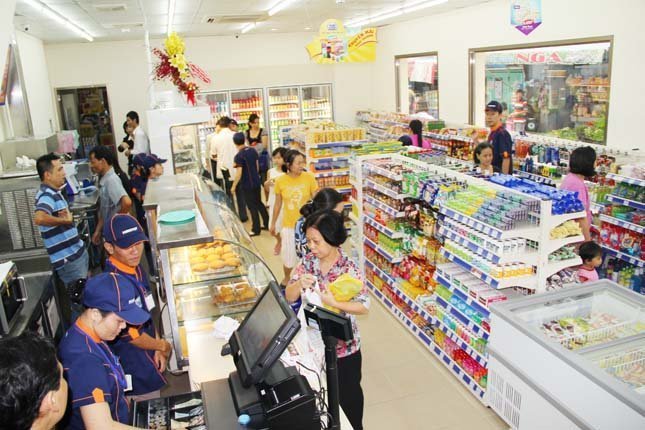The new tendency in Japanese FDI in Vietnam

The new tendency, which was predicted by Japanese experts 3-4 years ago, has become true when a lot of Japanese enterprises try to penetrate the Vietnamese market through different ways.
Distribution
Japanese investors not only want to bring raw materials, equipment from Japan to Vietnam, where they set up factories to make products for export, but they now also want to set up business centers, retail shops to sell the products made in Japan and other countries in Vietnam.
While Family Mart and MiniStop have been expanding their distribution networks in HCM City, Japanese leading retail group Aeon--has announced its official presence in Vietnam--with a shopping mall project on an area of 3.5 hectares, located in Celadon City project and developed by TTJSC. With the project, the Japanese retailer would target medium income earners.
Takashimaya retail group is also heading for Vietnam, which, when entering the market, would bring a lot of well-known fashion brands in the world.
Jetro (the Japan External Trade Organization) said that the tendency of Japanese investors flocking into Vietnam was anticipated in 2009, when Vietnam officially opened its market to 100 percent foreign enterprises.
Domestic consumption
Young population, improving income and familiar tastes with Japanese consumers are all the factors that make the Vietnamese market become more attractive in the eyes of Japanese investors--in the field of consumer goods production, which has witnessed rapid growth in recent years.
Buying shares of consumer goods production companies is the choice of many investors who want to take a short cut to the Vietnamese market, instead of making an investment from the beginning.
Besides, as the yen has been appreciating against the US dollar, Japanese economic groups tend to buy stakes in Vietnamese companies to preserve their capital and expand market.
Recently, Unicharm has bought 95 percent of stakes of Diana Vietnam worth 128 million dollars.
The other well-known merger and acquisition deals in the consumer goods production include the ones in which Kirin Holding bought stakes of Interfoods, Daio Paper bought stakes of the Saigon Paper Corporation. Ezaki Glico Group, a sweet and food group, has bought 10 percent of chartered capital of Vietnamese Kinh Do Group.
Analysts have commented that the Japanese purchases were all good bargains, since domestic production is facing big difficulties and domestic enterprises bear very high bank loan interest rates.
Real estate
Real estate was never an attractive business field for Japanese investors in the past. However, the situation has changed a lot.
According to the Foreign Investment Agency, in the first quarter of 2012, Japan led foreign direct investment in Vietnam with the investment capital poured into the country accounting for 88.8 percent of total foreign direct investment (2.3 billion dollars). Especially, real estate was the sector that saw the highest registered capital.
Tokyu Corporation has teamed up with Becamex IDC Corp to form up a 1.2 billion dollar joint venture to develop 71 hectares of land in the new city of Binh Duong.
Since lacking capital, Vietnamese real estate developers with big land fund are trying to sell land to get money to develop other projects. Tama Global Investment Pte in late December 2011 set its foot on the Vietnamese market by buying 20 percent of stakes of Cotecland, a real estate investment firm. Meanwhile, a Japanese investment fund has bought Center Point, a building on Nguyen Van Troi Street in HCM City.
Source: VNN
 Fiscal space and neo momentum created for enterprises
Fiscal space and neo momentum created for enterprises
 Provincial leader receives delegation from Da Nang city’s People's Committee
Provincial leader receives delegation from Da Nang city’s People's Committee
 Entrepreneurs pioneering in joining forces with Binh Duong for development
Entrepreneurs pioneering in joining forces with Binh Duong for development
 Investment attracted, development of trade and services elevated
Investment attracted, development of trade and services elevated
 AI - A trend to support e-commerce businesses
AI - A trend to support e-commerce businesses
 Private economic sector joins up developing Binh Duong
Private economic sector joins up developing Binh Duong
 Enterprises resuming operations up 25% in nine months
Enterprises resuming operations up 25% in nine months
 Bright prospects for exports to set new record in 2024: Experts
Bright prospects for exports to set new record in 2024: Experts
 Steps for green development strategy concretized
Steps for green development strategy concretized
 Phu Giao bound for sustainable development
Phu Giao bound for sustainable development








